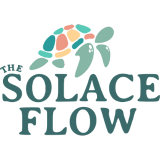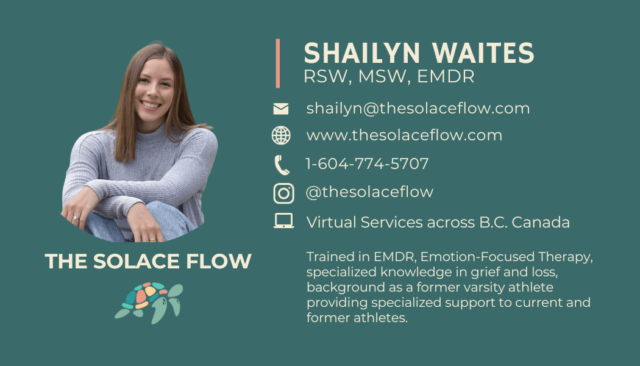Redefining Athletic Success: A Naturopathic Doctor’s Take on Food, Body Image, and Mental Health in Sport
Hi, I’m Dr. Taylor Thurston, a Naturopathic Doctor with a clinical focus in mental health and women’s health. As a former university athlete, I’ve seen firsthand how the pressures of competition can affect not just physical performance, but also an athlete’s relationship with food, body image, and mental health. In this post, I’ll explore the complex interplay between nutrition, body image, and emotional health in sports. Many athletes struggle with food in ways that often go unspoken, and if your relationship with food has become stressful or confusing, you’re not alone. My goal is to help athletes recognize signs of disordered eating, understand the importance of proper fuelling, and begin to cultivate a healthier relationship with food that supports both physical performance and mental health.
In the world of athletics, the journey to peak performance is often layered with external pressures around body image, weight, and diet. From elite athletes to those simply devoted to regular physical activity, many find themselves navigating complex relationships with food, body image, and mental health. At its best, an athlete’s connection to nutrition enhances both physical performance and emotional well-being. At its worst, it can spiral into restrictive eating, unhealthy weight control practices, and emotional strain.
Debunking the Myth: Are Smaller, Leaner Bodies Really Better at Sports?
Let’s clear something up: a lean, muscular body is not the be-all and end-all for athletic success. The push to “look the part” in sports can create pressure for athletes to alter their natural body shapes, sometimes at the expense of their health. When appearance takes priority over proper fueling, athletes can fall into unhealthy eating patterns that harm both their well-being and performance.
True athletic success isn’t about size; it’s about skill, strength, agility, endurance, determination, mental focus, and so much more—all of which rely on good nutrition and recovery not body size. Instead of focusing on achieving a specific look, the priority should be on how well we’re fueling, recovering, and supporting overall health and performance—both physically and mentally. For athletes, it’s less about fitting a mold and more about nurturing the body and mind to perform at their best. But it’s not that simple and that is why having a naturopathic doctor on your care team with a clinical focus in mental health and athletics can be so helpful.
The Role of a Naturopathic Doctor in an Athlete’s Relationship with Food
As a naturopathic doctor, my role is to support athletes in recognizing, addressing, and managing these challenges so they can perform at their best, both physically and mentally. This holistic approach aims to help athletes thrive in every aspect of their lives—on and off the field.
Why a Naturopathic Doctor?
When athletes experience issues like hormonal imbalances, irregular periods, or fatigue, they may visit their family doctor, who might suggest simply “exercising less” or “taking it easy” as the solution. While rest is important (and sometimes necessary), this approach often overlooks the complexity of the situation. Try telling an athlete to just stop their sport—yeah, that’s probably not going to happen. As a naturopathic doctor with a clinical focus in athletic training, I bring a comprehensive and nuanced understanding to these challenges. I recognize that the connection between training, nutrition, body image, and mental health is much more intricate than it may seem. Instead of attributing these symptoms solely to exercise or stress, I take into account the full scope of your physical and emotional well-being, considering factors like energy availability, nutritional needs, hormonal health, and psychological pressures.
As someone with a background in both athletics and naturopathic medicine, I understand firsthand how critical it is to look at the whole person. I have the time and expertise to offer a more thorough assessment, work with you on a personalized treatment plan, and address underlying causes that might otherwise be missed. This means having the space to dive into detailed discussions about your symptoms, training regimen, nutrition, and mental health without rushing through your visit. This holistic and personalized approach allows us to uncover patterns and issues that might not be immediately obvious, empowering athletes to better understand their bodies and take proactive steps toward optimizing their health. Here are some specific things we would work on together to support your performance and mental health.
Recognizing Signs and Symptoms
Athletes often come to me with issues like fatigue, low energy, low mood, anxiety, frequent illness, or irregular periods. These symptoms are sometimes overlooked or dismissed as “normal” for athletes due to their training demands, but they’re often the first signs of low energy availability (LEA) or relative energy deficiency in sport (RED-S). These conditions occur when athletes aren’t fueling enough to meet the demands of their sport, leading to health consequences. By recognizing these signs early, we can help athletes avoid long-term health risks and develop a healthier relationship with food.
Long-term consequences of LEA and RED-S can include:
- Irregular or absent menstrual periods
- Low bone mineral density and increased risk of bone stress injuries
- Decreased mood and performance
- Recurrent injuries and illnesses
- And a lot more!
Assessment and Personalized Plan
Once these signs are identified, a deeper assessment is essential. Bloodwork can reveal nutrient deficiencies, such as low iron, B12, or hormone levels (thyroid, estrogen, progesterone, etc), that may indicate under-fueling. Many athletes are at high risk of deficiencies that impact not just performance but also bone health, cardiovascular health, and mental health.
From there, we create a personalized plan focused on proper nutrition, recovery, and supplementation if necessary. A critical part of this plan is helping athletes understand the importance of fuelling with enough calories and nutrients, including carbohydrates, which are often restricted in an attempt to “lean out.”
Building a Support Team
The most crucial part of helping an athlete build a positive relationship with food is creating a support team. Athletes do best when they feel supported in all aspects. That is why I am almost always referring to a therapist or social worker who specializes in athletes and disordered eating (check out: @thesolaceflow) to work on body image, psychological pressures, and mental health. Working alongside a registered dietitian who understands the demands of their sport can be invaluable in guiding their nutrition and ensuring they’re getting enough fuel for optimal performance.
By building a well-rounded team, we can help athletes learn to prioritize health and performance, fuel effectively, and feel strong in their own skin. Together, this holistic approach reinforces that the best athletes are not defined by body shape or size but by health, resilience, and confidence in their journey.
How to Connect With Dr. Taylor Thurston
If you’re looking to take the next step in optimizing your health and performance, I’d love to hear from you. Visit my website at www.drtaylorthurston.com to learn more about my services and book an appointment. You can also follow me on social media @drtaylorthurston for tips, updates, and more insights into how I can support your journey. If you’re ready to start working together, schedule a consultation today and let’s begin building a personalized plan to support your health, performance, and mental health.
If you are located in British Columbia or Ontario Canada and want to pursue counselling as an athlete in sport or transitioning out of your sport, click here to BOOK NOW: thesolaceflow.janeapp.com/
Want to learn more about mental health in sports? Follow @thesolaceflow on Instagram for daily posts related to athletics.


